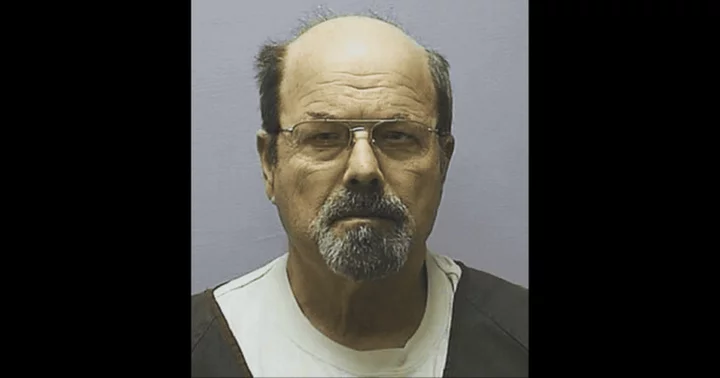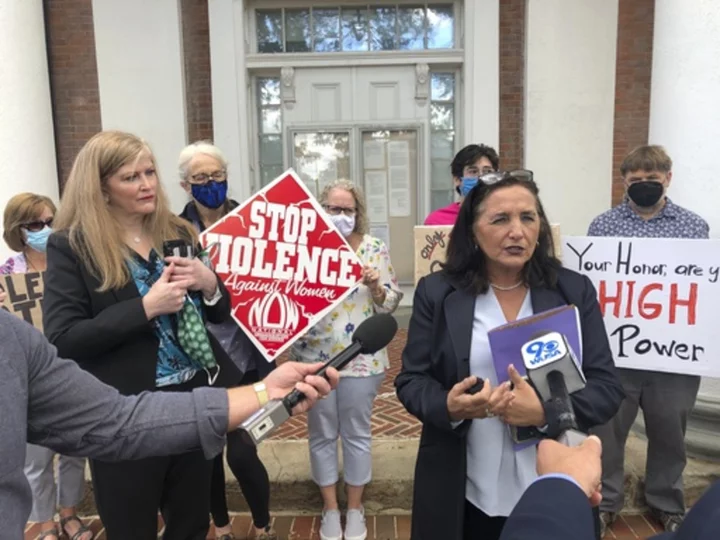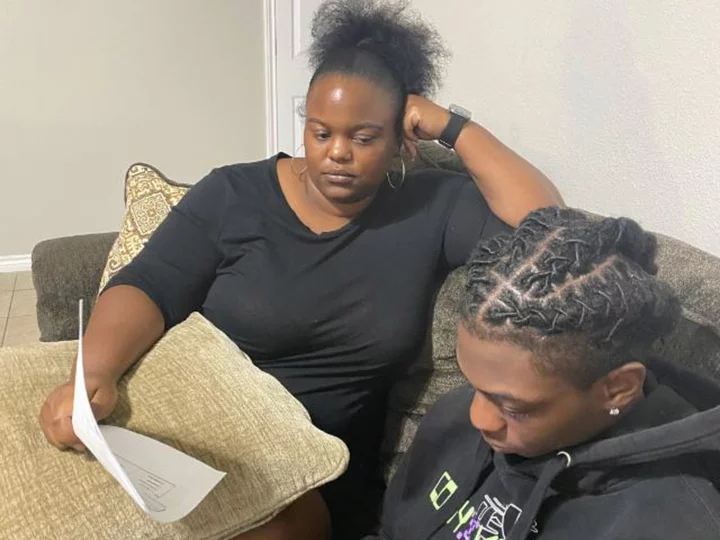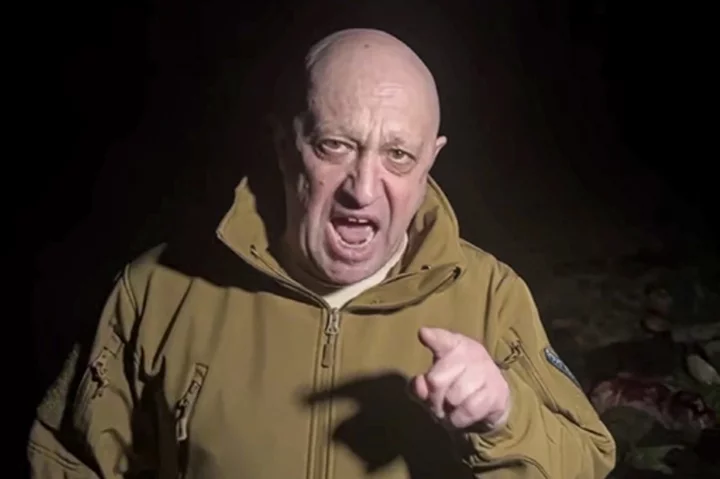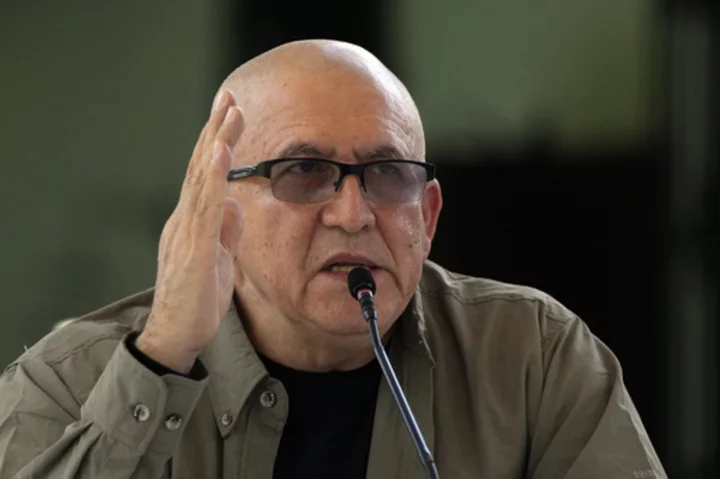WICHITA, KANSAS: In a shocking development, previously undisclosed drawings by the notorious BTK serial killer, Dennis Rader, have come to light. The disturbing sketches depict scenes of terrified and bound women, reigniting investigations into cold cases that may be linked to the 78-year-old criminal.
Rader, who infamously coined his moniker from "bind, torture, kill," is currently serving a life sentence for a series of gruesome murders that terrorized Wichita, Kansas, for over two decades.
The newly revealed drawings, among hundreds concealed in Rader's possession at the time of his arrest in 2005, have raised concerns and sparked fresh leads in unresolved cases. Law enforcement agencies are collaborating to scrutinize the macabre artworks in the hope of uncovering vital clues.
BTK victim identified
Three of the drawings stand out as particularly haunting. The first two show women, one dressed in a short red outfit, bound with nooses ominously hanging around their necks.
The third portrays a blond woman, her eyes wide with fear, her limbs tightly bound with rope, and a red gag muffling her cries for help.
This third woman, wearing a green top, is believed to have been identified as a southeast Kansas woman who mysteriously vanished in 1991, according to Osage County Sheriff Eddie Virden.
Sheriff Virden has been tight-lipped about details regarding the identified woman but has hinted at "very, very good tips" pouring in regarding the drawings and potential victims. The emergence of the chilling images has triggered a significant influx of leads, promising a busy week for investigators.
“It’s going to be a busy week,” Virden told CNN of the flow of tips that have “provided more information.”
Clues within BTK drawings
Of particular interest is the backdrop depicted in the drawings. Authorities are hoping that releasing these sketches will prompt recognition of the barns or silos featured in the scenes.
“We’re hoping that releasing these, someone might recognize one of these barns or the unique features in them, or the closeness of the silo to the barn or possibly might have even found items that they didn’t know why were there that could be very important in this case,” Virden said. “Even if the barn’s not there anymore. We would still like that information.”
Intriguingly, officials believe that the black piping visible behind the woman in the green shirt may hold a crucial clue.
“The reason you would have that is if you were moving livestock through there, that those bars would keep the livestock from hitting probably the tin or the wood on the outside of the barn so that if an animal hit it, you know, they wouldn’t go through and dent up the tin or knock the wood off the outside,” Virden told CNN.
“We know from things Dennis said on this exact photograph that it was a drawing he created from an actual barn,” he added.
Similarly, the drawing featuring the woman in the red shirt appears to depict a wooden space, potentially a tack or feed room within a barn.
“That would be a barn that had wood slats. You know, possibly a rounded post, but in that area of the barn what would have possibly a wooden floor, you know, and a lot of times in tack rooms inside of barns or in feed rooms or storage. They wouldn’t leave a dirt floor because they didn’t have livestock in that area,” Virden explained.
These nuances could play a pivotal role in identifying the locations portrayed in the drawings.
Another intriguing angle is a staircase shown in one of the drawings, with a support post featuring a bracket and bolt. This architectural detail might serve as a unique identifier, potentially leading investigators to the actual site.
BTK's daughter chimes in
Adding to the intrigue, law enforcement has intercepted prison communications from Rader suggesting that evidence may be concealed in old barns. This aligns with Rader's long-standing fascination with barns and their surroundings, as explained by his daughter, Kerri Rawson, the author of 'A Serial Killer’s Daughter'.
“My father did drafting at our house, he drew up plans for the gardens,” Rawson told CNN. “And my dad needed to always be outside and be in the air and winter was hard for him. And so we had to find things for him to do because when he got inside and he was too cooped up, he would get all angry."
“My father absolutely loves barns and silos. Every time we drove around going camping, fishing, to college, he’d absolutely say ‘This one’ — like he said, ‘I want to retire here.’ And he would tease my mom about it," she continued.
“And then after he was arrested, we found out later that he had massive fantasies about those specific locations. So now we’re driving around trying to find those by my memory and noting them because we need to go see, is there anybody missing or buried there," Rawson added.
BTK's link to Cynthia Dawn Kinney
Earlier this summer, Rader was named a person of interest in the 1976 disappearance of Oklahoma teen Cynthia Dawn Kinney. Journals maintained by Rader hinted at a possible connection to Kinney's alleged abduction, sparking further investigations into items found in a hidden compartment at Rader's former property in Park City, Kansas.
Osage investigators are now seeking assistance from state and federal agencies to process any remaining DNA evidence on ligatures and other items found, in addition to those recovered in 2005.
However, despite the renewed efforts to solve these chilling cases, the FBI's field office in Kansas City reported that it is not currently involved in any BTK-related investigations. The Kansas Bureau of Investigation has met with the Osage County crew but did not participate in the property searches, per the New York Post.

